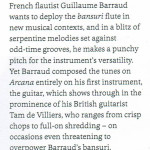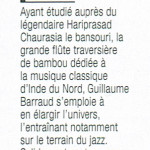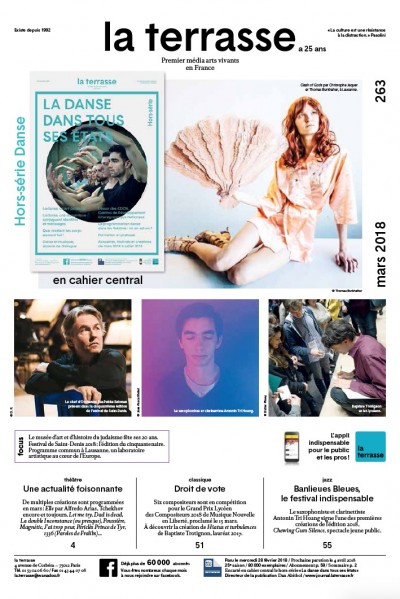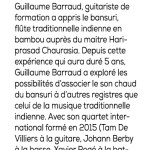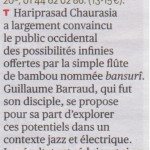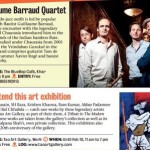Press Review
ARCANA
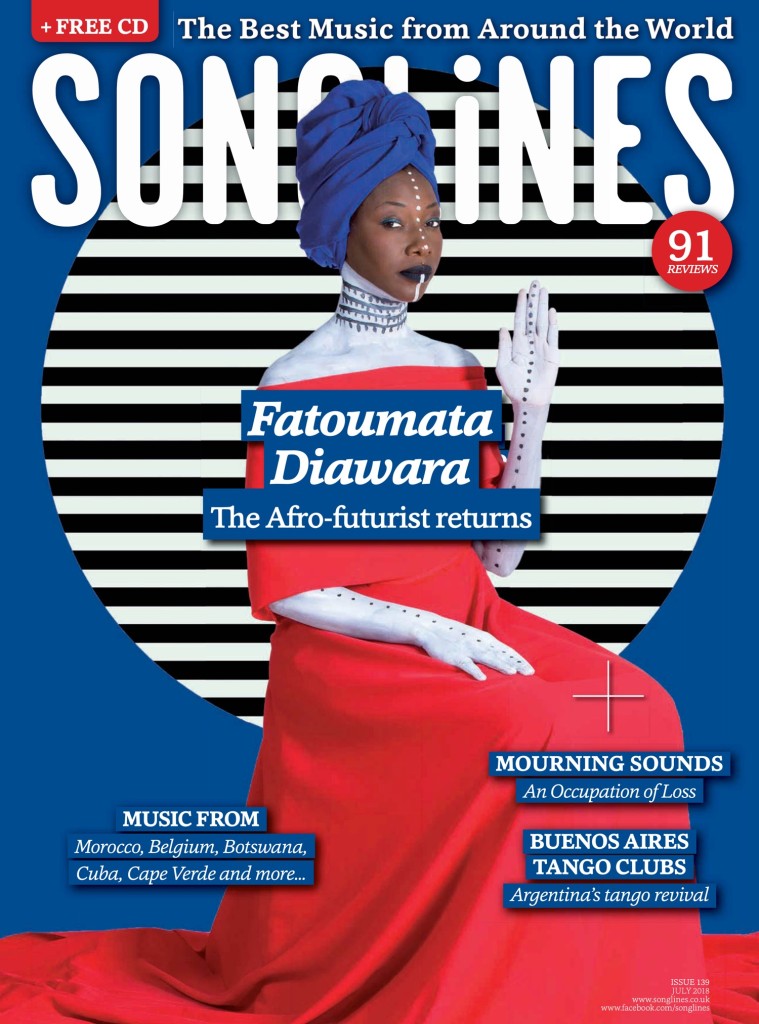
“Arcana announces itself with ‘Kalavati’, a driving fusion track named after a Hindustani raga; the piece establishes the album as very much at the jazz end of the Indo-jazz spectrum. French flautist Guīllaume Barraud wants to deploy the bansuri flute in new musical contexts, and in a blitz of serpentine melodies set against odd-time grooves, he makes a punchy pitch for the instrument’s versatility. Yet Barraud composed the tunes on Arcana entirely on his first instrument, the guitar, which shows through in the prominence of his British guitarist Tam de Villiers, who ranges from crisp chops to full-on shredding – on occasions even threatening to overpower Barraud’s bansuri. ‘Mumbai on My Mind’ achieves the right balance, with Barraud’s solo borne on a wave of jangly guitar to frenzied flutter-tongued heights. Any use of the bansuri in jazz evokes legendary Indian flautist Hariprasad Chaurasia, with whom Barraud studied for five years in Mumbai. Arcana has a harder-edged sound than the East meets West fusions of Chaurasia’s collaborators, such as John McLaughlin or Jan Garbarek. It is an alternative to be applauded and enjoyed.”
Liam Izod — SONGLINES (#139)
“Arcana démarre avec ‘Kalavati’, morceau de fusion entraînant qui porte le nom d’un raga hindoustani et place l’album à l’extrémité jazz du spectre indo-jazz. Le flûtiste français Guīllaume Barraud veut ouvrir la flûte bansuri à de nouveaux contextes musicaux, et dans un jaillissement de mélodies ondoyantes sur fond de grooves impairs, il donne une tonalité percutante à l’instrument. Pourtant, Barraud a composé entièrement Arcana sur son premier instrument, la guitare, ce qui se reflète dans la prééminence de son guitariste britannique Tam de Villiers, au jeu net et tranchant, qui menace même parfois de dominer la flûte. Mumbai On My Mind trouve le parfait équilibre avec le solo de Barraud porté à des hauteurs frénétiques par une vague de guitare ‘jangly’. Toute utilisation du bansuri dans le jazz évoque le flûtiste indien légendaire Hariprasad Chaurasia, avec lequel Barraud a étudié pendant cinq ans à Mumbai. Arcana a un son plus dur que les fusions East meets West des collaborateurs de Chaurasia, comme John McLaughlin ou Jan Garbarek. C’est une alternative à applaudir et à apprécier.”
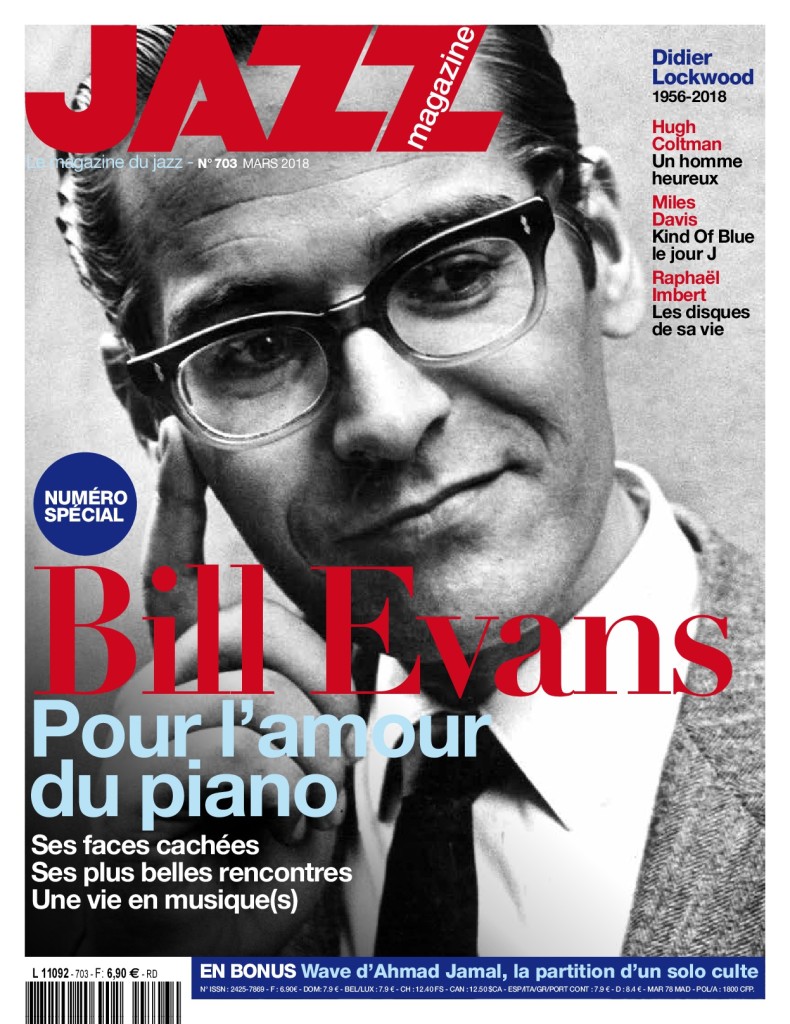
RÉVÉLATION !
“Ayant étudié auprès du légendaire Hariprasad Chaurasia le bansouri, la grande flûte traversière de bambou dédiée à la musique classique d’Inde du Nord, Guillaume Barraud s’emploie à élargir l’univers, l’entraînant notamment sur le terrain du Jazz. Solidement sountenu par le bassiste électrique Johann Berby et le batteur Xavier Rogé, il muscle la dimension méditative héritée de son instrument de mélodies nerveusement rythmées que dynamise encore la répartie du guitariste Tam De Villiers. Ce séduisant album constitue une belle surprise.”
Thierry P. Bénizeau — JAZZ MAGAZINE (#703)
“Having studied the bansuri, that is the great transverse, bamboo flute dedicated to North Indian classical music, with the legendary Hariprasad Chaurasia, Guillaume expands its universe, bringing the instrument into the realm of jazz. Strongly supported by the electric bassist Johann Berby and drummer Xavier Rogé, he strengthens the meditative dimension inherited from his instrument with fast-paced, rhythmic melodies that are further energized by guitarist Tam De Villiers’s repartee. This captivating album comes as a great surprise.”
“Par quel mystérieux processus intérieur passe-t-on, au cœur d’un parcours de musicien, d’un instrument à un autre? C’est aussi à la réponse à cette question que nous invitent les superbes ‘Indo-Jazz Sessions’ de l’album ‘Arcana’ que publie aujourd‘hui Guīllaume Barraud. Voué d’abord à la guitare, ce musicien singulier a fait basculer sa trajectoire musicale après une rencontre avec une légende de la musique indienne, le flûtiste Hariprasad Chaurasia. De 2001 à 2006, il se consacre à l’étude en profondeur de la musique classique nord-indienne auprès du maestro dans sa célèbre université Vrindaban Gurukul à Bombay, en se dédiant entièrement à la flûte Bansuri. Après bien des aventures et rencontres musicales, de Tryo à Tony Gatlif en passant par Trilok Gurtu, il se lance enfin, début 2015, dans le projet qui compte le plus à ses yeux, son propre quartet composé du guitariste britannique Tam de Villiers, du batteur belge Xavier Rogé et du bassiste réunionnais Johann Berby. Leur premier album vient de sortir (chez World Music Network | Riverboat Records) et propulse d’emblée ce groupe, porté par de belles compositions personnelles, au rang des formations actuelles les plus convaincantes dans cette veine hautement poétique de l’indo-jazz contemporain.”
Jean-Luc Caradec — LA TERRASSE (#263)
“Through what mysterious inner process at the heart of a musician’s career path one will switch from one instrument to another? It is also to the answer to this question that the superb “Indo-Jazz Sessions” of the album “Arcana” published today by Guillaume Barraud invite us. First dedicated to the guitar, this singular musician changed his musical trajectory after his encounter with an Indian music legend, the flautist Hariprasad Chaurasia. From 2001 to 2006, he devoted himself to the in-depth studies of North Indian classical music with the maestro at his famous University: ‘Vrindaban Gurukul’ in Bombay, dedicating himself entirely to the Bansuri flute. After countless adventures and musical encounters, from Tryo to Tony Gatlif and Trilok Gurtu, he finally launched in early the project that matters most to him: his own quartet comprised of British guitarist Tam de Villiers, Belgian drummer Xavier Rogé and bassist Johann Berby from Reunion Island. Their debut album has just been released (on World Music Network|Riverboat Records) and immediately propels this group, borne by beautiful personal compositions, to the rank of the most convincing current bands in this highly poetic vein of contemporary Indo-jazz.”
les superbes ‘Indo-Jazz Sessions’ propulsent d’emblée ce groupe au sein des formations actuelles les plus convaincantes
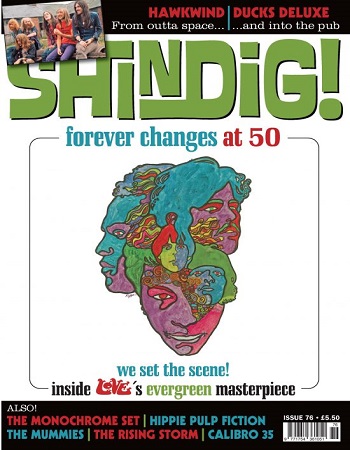
“The Guīllaume Barraud Quartet’s Arcana: The Indo-Jazz Sessions (★★★★ World Music Network/Riverboat Records CD) showcases Barraud’s mastery of the Indian bamboo flute (bansuri) when combined with the more conventional jazz instrumentation of electric guitar, bass and drums. Recorded ‘live’ in the studio and deeply exploratory in mood, the delicate duelling and intricate interaction between Barraud’s bansuri, Tam de Villiers guitar and the fleet-footed rhythm section never fails to turn up interesting results among them the fast moving ‘Giant Leap’- composed as a tribute to Miles Davis which comes complete with the occasional hint of the Mahavishnu Orchestra.(…)”
Grahame Bent — SHINDIG MAGAZINE (#76)
“‘Arcana: The Indo-Jazz Sessions’ (★★★★ World Music Network/CD Riverboat Records) dévoile la maîtrise de Guillaume Barraud à la flûte indienne en bambou (bansuri), associée à une instrumentation jazz plus conventionnelle: guitare électrique, basse, batterie. Enregistré live en studio et profondément expérimental, le duel élégant et l’interaction complexe entre le bansuri de Barraud, la guitare de Tam de Villiers, et la section rythmique virtuose, ne manquent jamais de produire des résultats surprenants parmi lesquels le frénétique ‘Giant Leap’, composé en hommage à Miles Davis et qui évoque par moment des accents du Mahavishnu Orchestra. (…)”
never fails to turn up interesting results
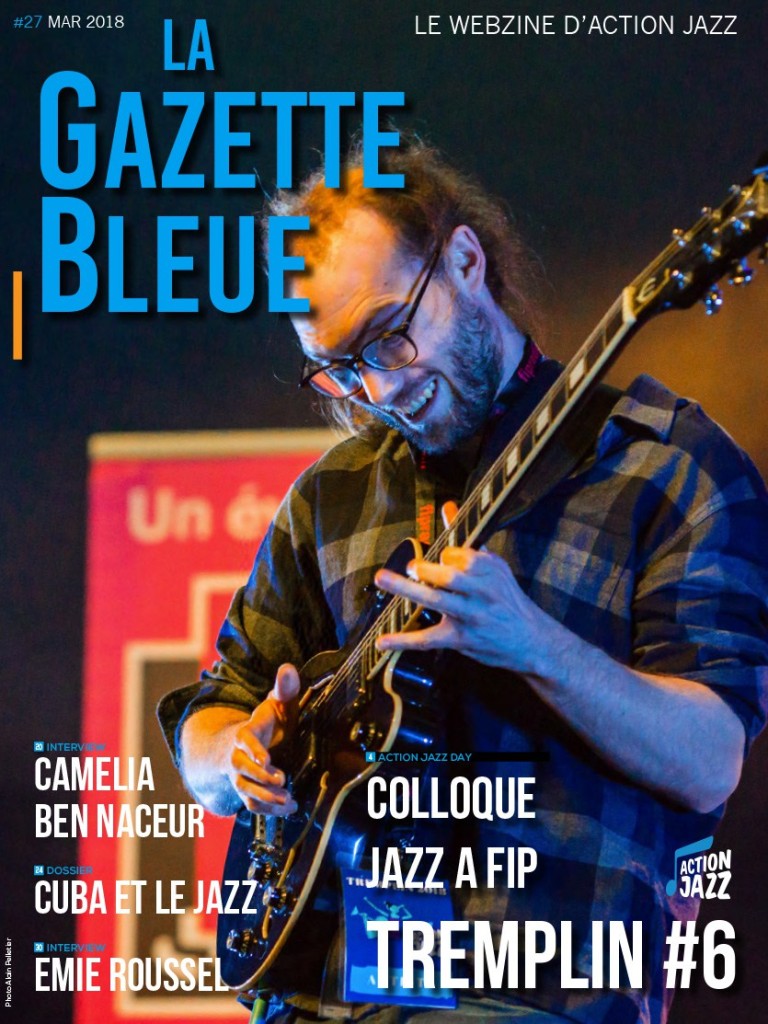
“(…) Il est des rencontres improbables que seul le jazz peut aisément envisager. C’est une de celles-là que Guillaume Barraud propose avec son CD sous-titré ‘The Indo-Jazz Sessions’. C’est clair, l’Orient s’invite au Blue Note. (…) Un joli brun d’exotisme et de parfums épicés à mettre entre les oreilles des plus exigents amateurs de jazz.”
Vince — LA GAZETTE BLEUE (#27)
“(…) There are unlikely encounters that only jazz can easily consider. It is one of those that Guillaume Barraud proposes with his CD subtitled ‘The Indo-Jazz Sessions’. Clearly, the East has come to the Blue Note…(…) A delightful touch of exoticism and spicy scents to get between the ears of the most demanding jazz lovers.”
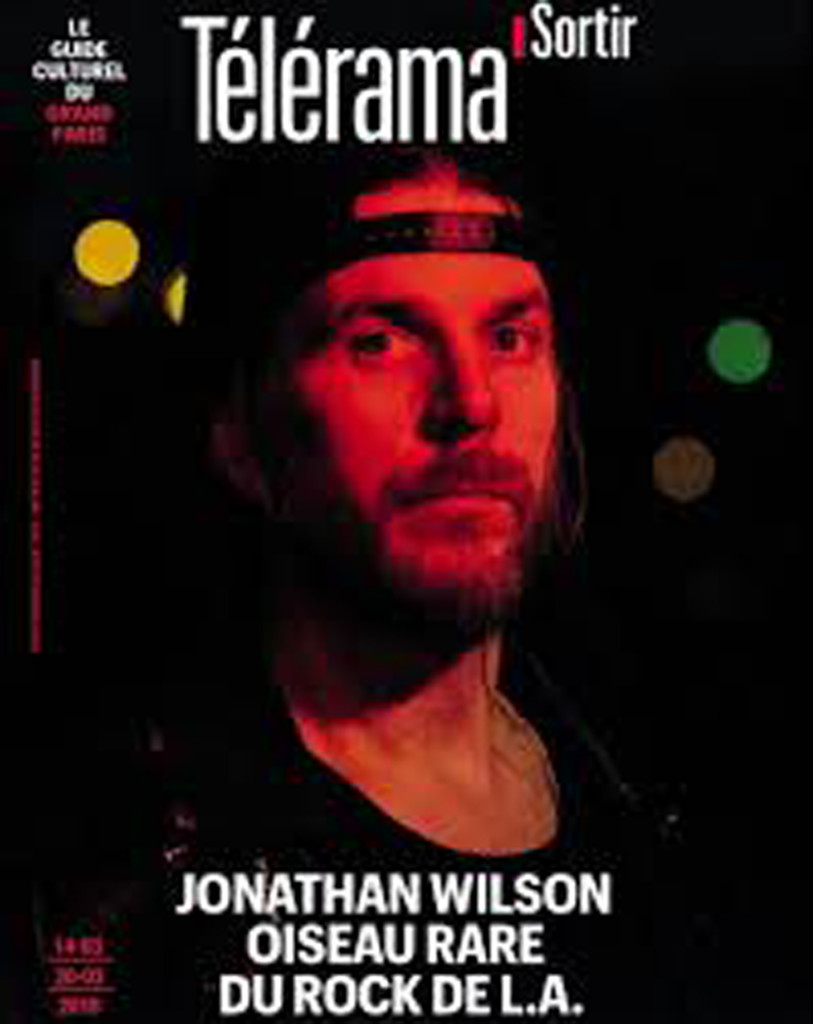
“Hariprasad Chaurasia a largement convaincu le public occidental des possibilités infinies offertes par la simple flûte de bambou nommé ‘bansuri’. Guillaume Barraud, qui fut son disciple, se propose pour sa part d’explorer ces potentiels dans un contexte jazz et électrique. Le résultat est séduisant si l’on en juge par l’album ‘Arcana: The Indo-Jazz Sessions’. On ne doute qu’il en sera de même sur scène.“
Louis-Julien Nicolaou — TÉLÉRAMA SORTIR #3557
“Hariprasad Chaurasia has widely convinced Western audiences of the infinite possibilities offered by the simple bamboo flute called ‘bansuri’. Guillaume Barraud, who was his disciple, explores these potentials in a jazz and electric context. The result is appealing judging by the album ‘Arcana: The Indo-Jazz Sessions’. No doubt it will be just the same on stage.”
“(…) an assertive and vintage metropolitan music in which odd grooves and sharp contrasts define the picture. (…) Leader Barraud makes his lyrical wind instrument bend with the sometime turbulent squalls of his energetic trio of fellow musicians in wondrous ways.(…) With Arcana, the quartet, who made their debut on CD, immediately passed the master’s test.”
Ronald Veerman
“(…) une musique urbaine affirmée, “vintage”, où rythmes changeants et contrastes nets définissent les contours. (…) Barraud, le leader, permet à son instrument à vent lyrique de se courber comme par magie face aux vents parfois orageux de son trio énergique de compagnons de jeu.(…) Avec ce premier album ‘Arcana’, le quartet passe avec succès le test du maître.”
the quartet immediatly passes the master’s test
CADENCEINFO.COM
“L’album ‘Arcana’ de Guīllaume Barraud est le parfait reflet d’un jazz qui se pare de métamorphoses sonores à la fois prenantes et captivantes. Cet adepte de la flûte bansuri nous invite dans un voyage complexe et dense qui ne cesse de rebondir et de nous surprendre. Sous-titré ‘The Indo-Jazz Sessions’, l’album porte une dimension méditative évidente sans ignorer les valeurs liées au jazz-fusion et aux mesures asymétriques si chères à la musique indienne. (…)”
Elian Jougla — CADENCEINFO
“The album ‘Arcana’ by Guīllaume Barraud is the perfect reflection of a jazz adorned with sound metamorphoses that are both engaging and captivating. This proponent of the bansuri flute invites us on a complex and dense journey that never fails to surprise us. Subtitled ‘The Indo-Jazz Sessions’, the album holds an obviously meditative dimension without ignoring the values relating to jazz-fusion and asymmetrical measures that are essential in Indian music. (…)”
un voyage complexe et dense, qui ne cesse de rebondir
et de nous surprendre
JAZZ-RHONE-ALPES.COM
“(…) Nous avions eu Shakti et le Mahavishnu Orchestra dans les années 70′ et plus récemment Mukta en France qui a beaucoup mixé la Sitar et le jazz. Le Guillaume Barraud Quartet renouvelle et modernise le genre du jazz fusion d’inspiration indienne. Après ce concert, à la fois groove et poétique, nous guetterons l’album ‘ARCANA’ en préparation pour cet hiver sur le catalogue Riverboat Records du label Anglo-Saxon World Music Network.”
Jean-François Viaud — JAZZ-RHONE-ALPES
“(…) There was Shakti and the Mahavishnu Orchestra in the 70’s, and more recently Mukta in France, which has mixed jazz and sitar. The Guillaume Barraud Quartet refreshes and modernizes the Indo-Jazz fusion genre. After this concert, both groovy and poetic, we will look forward to the upcoming album ‘ARCANA’ in preparation for early 2018 on the Riverboat Records catalog of British record company World Music Network.”
renouvelle et modernise
le genre du jazz fusion

“(…) L’interaction entre les musiciens est constante et les instruments sont tellement intriqués que l’on a la sensation que l’on ne pourrait rien ajouter de plus à ce que joue le quartet. En somme, un groupe équilibré et dense et qui a des choses à raconter, merci pour ce voyage!”
Vincent Morin — JAZZ’IN LYON
“(…) The interaction between the musicians is constant and the instruments are so entangled one has the feeling that one couldn’t add anything more to what the quartet plays. In short, a dense and balanced group which has a lot to say, thanks for the trip!”
merci pour ce voyage

“(…) Lorsqu’arrive sur scène le quartet de Guīllaume Barraud, on découvre encore une autre facette du jazz, celui qui épouse une Pop venue de loin, venue d’Inde où le musicien a vécu cinq ans pour y peaufiner son art. La délicate mélopée de la flute Bansouri s’enroule autour de la nuque, descend le long du dos, apaise, adoucit. Ce quatuor est une sorte de tapis volant, dont la trame majeure est l’instrument de bambou, enluminée et tissée par Tam de Villiers à la guitare électrique, Johann Berby à la basse et Xavier Rogé à la batterie. ARCANA, leur album sera le 9 février 2018 dans les bacs.”
Caroline Prévost
“(…) When Guillaume Barraud’s quartet arrives on stage, we discover yet another face of jazz, the one that embraces a Pop coming from far away: from India where the musician spent five years refining his art. The delicate melody of the Bansuri flute wraps around the neck, down the back, soothes, softens. This quartet is a kind of flying carpet, whose main frame is the bamboo instrument illuminated and woven by Tam de Villiers on electric guitar, Johann Berby on bass and Xavier Rogé on drums. Their album: ‘Arcana’ will be out on February 9th 2018.”
la décilcate mélopée de la flûte bansouri s’enroule autour de la nuque, descend le long du dos, apaise, adoucit
COULEUR-INDIENNE.NET
“Il se dégage de la flûte bansouri jouée par Guillaume Barraud, et dans la manière dont il explore les notes, un profond lyrisme teinté d’orange (couleur symbole de l’Inde) et de bleu. Sa flûte si particulière crée une alchimie inattendue, et si naturelle à la fois, tout au long de cet album Arcana: The Indo-Jazz Sessions, fraîchement sorti début février 2018. On se trouve vite emporté par la mélopée de cette flûte traversière indienne que Guillaume manie avec science depuis 2001. On est vite porté vers des cieux où Inde et Occident, musique traditionnelle Indienne et Jazz se mêlent. Dans ce qu’on pourrait qualifier d’album “fusion” très réussi, le flûtiste est accompagné de virtuoses de la scène Jazz, tous rompus à l’exercice indo-occidental, mais comme galvanisés par ce nouveau défi tant ils paraissent inspirés. On trouve donc dans ce quartet, le guitariste britannique Tam de Villiers, le bassiste réunionnais Johann Berby, et le batteur belge Xavier Rogé. Les 9 morceaux ont été composés par Guillaume Barraud ce qui fait de cet album un travail très personnel, qui rend compte de toute la sincérité du propos derrière chaque note soufflée. Cette flûte traversière indienne traditionnelle est sans doute le plus ancien instrument de la musique hindoustanie (musique de l’nde du Nord). J’imagine qu’il aura fallu des années en apprentissage et en formation auprès de Hariprasad Chaurasia, son maître et mentor, pour parvenir à un tel niveau de virtuosité. L’instrument renvoie aux ragas indiens ancestraux. De Mélopée, la musique du bansouri devient souffle de vie dans cet album surprenant aux accents parfois proches de celui du Mahavishnu Orchestra, dont Guillaume se réclame dans un des morceaux. Il faut écouter et réécouter cet album si l’on veut voyager et passer un moment musical unique.”
Fabienne-Shanti Desjardins
“What emerges from the bansouri flute played by Guillaume Barraud and in the way he explores melody is a deep lyricism tinged with orange (symbolising India) and blue. His singular flute creates an unexpected yet natural alchemy throughout this album: ‘Arcana: The Indo-Jazz Sessions’ freshly released in early February 2018. We are quickly carried away by the chant of this Indian flute that Guillaume has been playing meticulously since 2001, and drawn to other shores where India and the West, traditional Indian music and Jazz mingle. In what could be described as a very successful “fusion” album, the flautist is accompanied by virtuosos from the jazz scene, all experienced in the Indo-Western genre, but as if thrilled by this new challenge, so inspired do they seem. The quartet is comprised of British guitarist Tam de Villiers, Reunionese bassist Johann Berby and Belgian drummer Xavier Rogé. The 9 tracks were composed by Guillaume Barraud himself that makes this album a very personal work, which reflects all the sincerity of the intention behind each blown note. This traditional Indian transverse flute is perhaps the oldest instrument of Hindustani music (music from northern India). I suppose it must have taken years of learning and training with Hariprasad Chaurasia, his master and mentor, to reach such a level of virtuosity. The instrument refers to the ancient Indian ragas. The melodic music of the bansouri becomes a breath of life in this surprising album with an occasional hint of the Mahavishnu Orchestra, to whom Guillaume refers in one of the tracks. One must play this album again and again to travel and spend a unique musical moment.“
un moment musical
unique
“Le jazz est protéiforme. Avec Guillaume Barraud, on en découvre une autre facette, à la croisée des chemins avec les musiques du monde. Un jazz qui se lie à une pop venue de loin, d’Inde où le musicien a vécu cinq ans pour y peaufiner son art. Lors de ce voyage initiatique, sa rencontre avec le grand musicien indien Hariprasad Chaurasia, virtuose de la flûte bansurî, sera une révélation.
« La flûte bansurî, instrument en bambou à la sonorité envoûtante et sensuelle, est l’instrument emblématique de l’Inde du Nord. De retour à Paris, Guillaume explore les possibilités de l’utiliser dans d’autres styles que celui de la musique traditionnelle, tout en développant un univers musical original », explique Tonnerre de jazz, l’association qui accueille le musicien dans le cadre de sa saison 2017–2018.”
LA RÉP DES PYRÉNÉES
“Jazz is protean. With Guillaume Barraud, we discover another dimension of it, at the crossroads with world music. A jazz linked to a pop music from far away, in India where the musician lived for five years to perfect his craft. During this journey of initiation, his meeting with the great Indian musician Hariprasad Chaurasia, bansuri flute virtuoso, was a revelation.
“The bansuri flute, a bamboo instrument with a bewitching and sensual sound, is the emblematic instrument of North India. Once returned to Paris, Guillaume explored the possibilities of using it in other genres than traditional music, while developing his own musical concept,” explains Tonnerre de jazz, the organization hosting the musician for its 2017-2018 season.”

“(…) Guillaume Barraud, après des débuts de guitariste, et suite à sa rencontre avec Hariprasad Chaurasia, est devenu une figure incontournable de la flûte bansuri qu’il intègre superbement, avec son héritage, au contexte du jazz contemporain. (…)”
Roland Corbelain — DAUPHINÉ LIBÉRÉ
“(…) Guillaume Barraud, after his debut as a guitarist, and following his encounter with Hariprasad Chaurasia, has become a key figure of the Bansuri flute that he superbly integrates into the context of contemporary jazz. (…)”
“La formation indo-jazz est dirigée par le flûtiste français populaire Guillaume Barraud, dont la rencontre avec le légendaire Hariprasad Chaurasia lui a fait découvrir les sons subtils de la flûte de bambou indienne. Il a ensuite étudié avec Chaurasia de 2001 à 2006 au Vrindaban Gurukul à Mumbai. Son groupe est composé du guitariste Tam de Villiers, du batteur Xavier Rogé et du bassiste Johann Berby.”
“[Pascal Lengagne] vient il y a quelques jours de terminer la bande-son du dernier film de Pef, “Fahim”, avec un orchestre de vingt-cinq musiciens, dont Guillaume Barraud, flûtiste bansuri, Prabhu Edouard aux percussions indiennes, et Pascal Lengagne himself, au piano”
Guilhem Richaud — MIDI LIBRE
“[Pascal Lengagne] has completed the soundtrack of Pef’s last film: ‘Fahim’, just a few days ago, with an orchestra comprised of twenty-five musicians, including bansuri flaustist Guillaume Barraud, Prabhu Edouard on Indian percussions, and Pascal Lengagne himself, on the piano”


